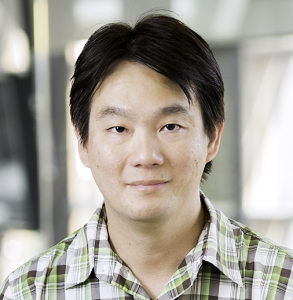
Kim-Kwang Raymond Choo
Title: Securing our cyber future: Challenges and Opportunities
Bio:
Kim-Kwang Raymond Choo received the Ph.D. in Information Security in 2006 from Queensland University of Technology, Australia, and currently holds the Cloud Technology Endowed Professorship at The University of Texas at San Antonio (UTSA), US. In 2015 he and his team won the Digital Forensics Research Challenge organized by Germany’s University of Erlangen-Nuremberg. He is the recipient of the 2019 IEEE Technical Committee on Scalable Computing Award for Excellence in Scalable Computing (Middle Career Researcher), 2018 UTSA College of Business Col. Jean Piccione and Lt. Col. Philip Piccione Endowed Research Award for Tenured Faculty, Outstanding Associate Editor of 2018 for IEEE Access, British Computer Society’s 2019 Wilkes Award Runner-up, 2019 EURASIP JWCN Best Paper Award, Korea Information Processing Society’s Journal of Information Processing Systems (JIPS) Survey Paper Award (Gold) 2019, IEEE Blockchain 2019 Outstanding Paper Award, Inscrypt 2019 Best Student Paper Award, IEEE TrustCom 2018 Best Paper Award, ESORICS 2015 Best Research Paper Award, 2014 Highly Commended Award by the Australia New Zealand Policing Advisory Agency, Fulbright Scholarship in 2009, 2008 Australia Day Achievement Medallion, and British Computer Society’s Wilkes Award in 2008. In 2020, he provide expert insights in writings to inform North Atlantic Treaty Organization (NATO) Allied Command Transformation (ACT) Innovation Hub’s Warfighting 2040 report. He has also reviewed for L’Oréal-UNESCO For Women in Science 2021 International Awards (Physical sciences, Mathematics and computer science), Canada Research Chairs Program (Tier 1 Chair – 2019), etc.
Abstract:
Culturally and economically open nations have thrived on the wealth that cyberspace and technologies have enabled. However, the connectedness of our cyber-physical worlds can also be exploited by individuals or groups with malicious intentions to carry out a broad spectrum of malicious activities against our society. An open nation cannot shut down its cyber systems for fear of these threats but instead it must build the national resilience needed to maintain an open yet secure cyberspace. Short-term technical and reactive measures (e.g. patching known vulnerabilities) are not adequate in addressing the constant evolving cyberthreat landscape and the broad spectrum of attacks. Therefore, this presentation will explain the importance of cross- and multi-disciplinary approaches in identifying cybersecurity risks and the potential target areas, and the development of technical and non-technical responses that will neutralize cybercrime opportunities before they arise.
 Prof. Aleksandar Jevremovic
Prof. Aleksandar Jevremovic
Faculty of Informatics and Computing / Singidunum University, Belgrade, Serbia
Guest lecturer at Harvard University, Cambridge, MA, USA
Title: Intelligent Infrastructures: Performance and Reliability Aspects
Abstract:
Telecommunication infrastructures are becoming more and more ubiquitous. Humans are increasingly relying upon these, both in terms of volume and criticality. In order to address these needs, the infrastructures are evolving intensively – becoming more intelligent and efficient. However, this evolvement comes with a price, and complexity is one of its major components. Today, a typical telecommunication stack of even very basic devices consists of tens of hundreds of components, including millions of code lines. The aftermath implies the need for more intelligent approaches to deal with this complexity in order to provide reliable, secure, and high-performing infrastructures for today’s digital society’s needs.

